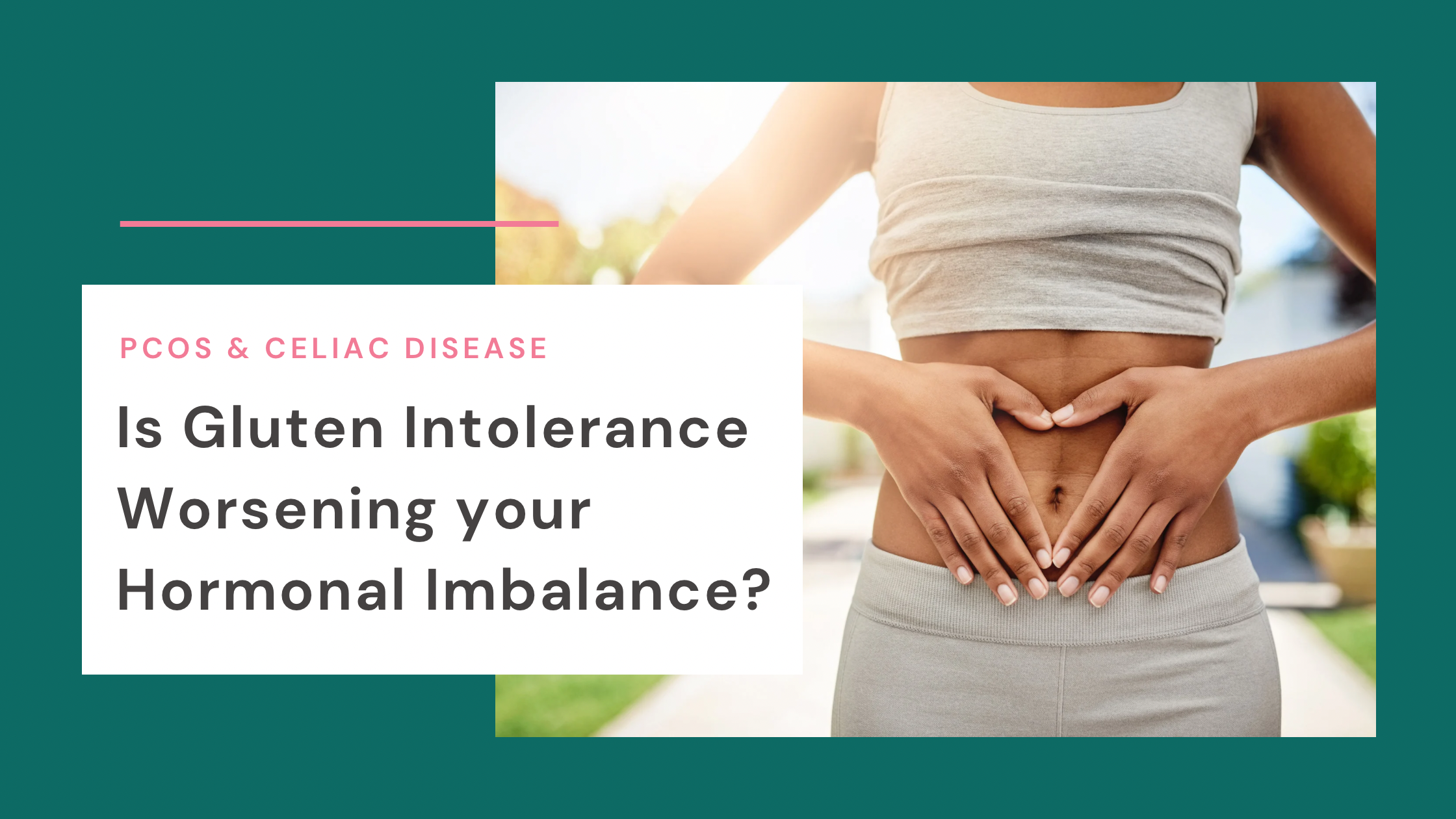Struggling with PCOS symptoms that just won’t budge? Gluten intolerance or celiac disease could be the missing link. Discover how gluten affects hormones, gut health, and PCOS symptoms—and what you can do about it.
Introduction: Unexplained PCOS Symptoms? Gluten Could Be the Culprit
Do you feel like you’re doing everything right for your PCOS, but still fighting fatigue, irregular cycles, or stubborn inflammation? For many Australian women, gluten intolerance or celiac disease might be quietly driving these hormonal imbalances. Let’s explore the research-backed connection between gluten, your gut, and your hormones.
What is Gluten Intolerance and Celiac Disease?
Gluten intolerance refers to a spectrum of reactions to gluten, a protein found in wheat, barley, and rye. The most severe form is celiac disease, an autoimmune condition where gluten triggers immune attacks on the small intestine, causing inflammation and nutrient malabsorption. Even without celiac, some people experience non-celiac gluten sensitivity, which can still cause gut and hormone issues.
How Gluten Intolerance Impacts Hormones and PCOS
1. Gut Health and Hormonal Balance
-
The gut is crucial for hormone production and regulation.
-
Gluten-induced gut inflammation can disrupt absorption of nutrients like iron, B vitamins, zinc, and magnesium—essential for hormone health.
-
Poor gut health can worsen PCOS symptoms like irregular periods and fatigue.
2. Inflammation and Hormonal Disruption
-
Both PCOS and gluten intolerance increase inflammation.
-
Chronic inflammation can worsen insulin resistance, disrupt cortisol (stress hormone), and affect thyroid and reproductive hormones.
-
Studies show women with celiac disease are at higher risk for PCOS, thyroid disorders, and fertility challenges.
3. Nutritional Deficiencies
-
Celiac disease often leads to deficiencies in iron, B vitamins, zinc, and magnesium.
-
These deficiencies can cause hair loss, low energy, and worsen hormonal imbalance.
4. Gluten, Insulin, and PCOS
-
Gluten intolerance can increase inflammation and insulin resistance—two key drivers of PCOS symptoms.
-
Managing gluten intake may help some women reduce PCOS-related inflammation and improve hormone balance.
Practical Steps for Managing Gluten and PCOS
-
Track Your Symptoms: Keep a food and symptom diary to spot gluten-related patterns.
-
Consult Your GP: Ask for celiac and gluten sensitivity testing if you notice digestive issues or unexplained PCOS flares.
-
Prioritise Gut Health: Opt for a nutrient-dense, gluten-free diet if diagnosed, and work with a dietitian to fill nutritional gaps.
-
Don’t Cut Gluten Without Cause: Unless you have celiac disease or diagnosed gluten intolerance, whole grains can support hormone health.
-
Focus on Whole Foods: Include plenty of fibre, leafy greens, seeds, and healthy fats to support hormone and gut health.
You’re Not Alone—And There’s Hope
If you’re struggling with unexplained PCOS symptoms, don’t ignore the possibility of gluten intolerance. Seek support, get tested, and remember—understanding your body is the first step to feeling your best. You’re not alone, and with the right information, you can take charge of your health journey.
This information is for educational purposes only and is not intended as medical advice. Always consult with a qualified healthcare provider before making changes to your health routine or if you suspect you may have celiac disease or hormonal imbalances.





